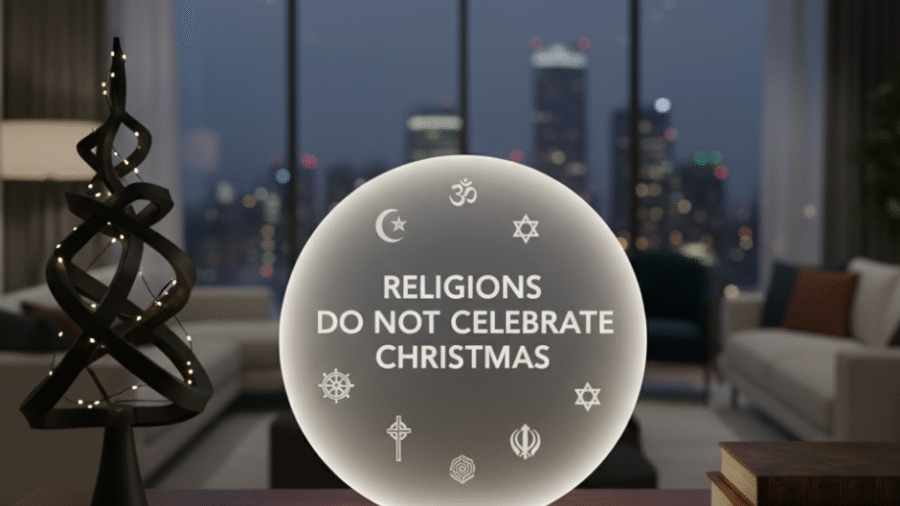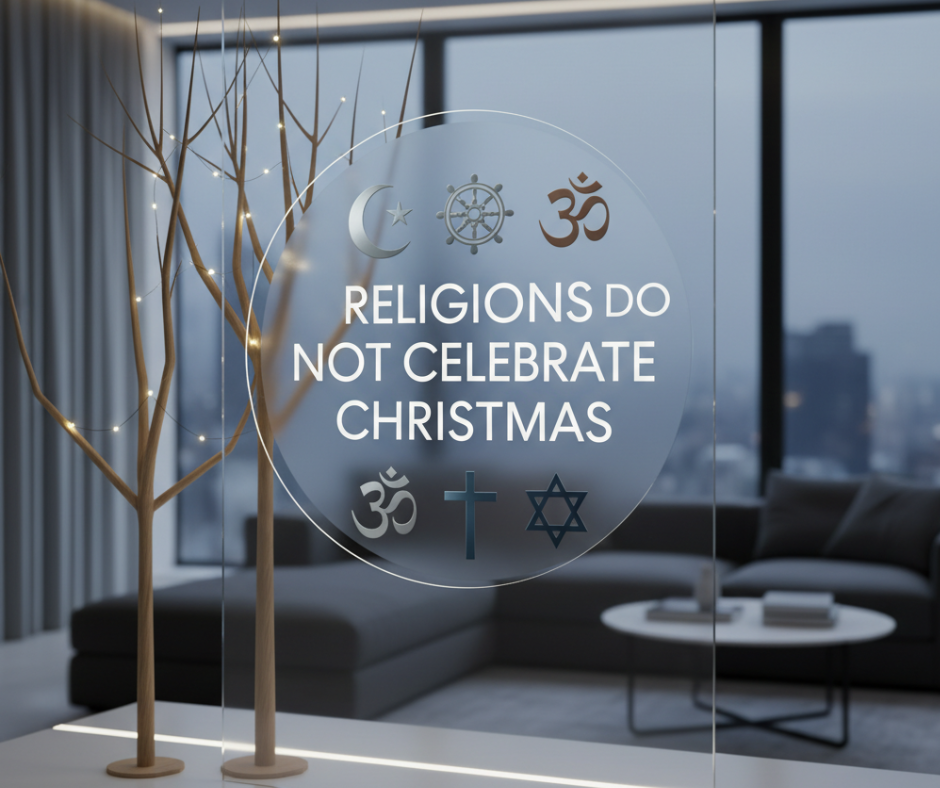Christmas, celebrated by billions worldwide, is a joyous occasion marking the birth of Jesus Christ. However, while it is one of the most widely observed holidays globally, Religions Do Not Celebrate Christmas. Several religious traditions either do not acknowledge Christmas or actively refrain from celebrating it due to differing theological beliefs, historical contexts, and cultural norms.
This comprehensive article explores which religions do not celebrate Christmas, the reasons behind their practices, and how those adherents observe their own significant holidays. Understanding this diversity fosters respect and enriches our awareness of global religious plurality.
Christianity and Christmas: A Brief Context
Before examining who refrains from Christmas, it’s important to note that Christmas is primarily a Christian holiday commemorating the birth of Jesus Christ. Most Christian denominations, including Roman Catholics, Orthodox Christians, and many Protestant groups, celebrate Christmas with varying customs and liturgical significance.
Even so, there are Christian sects and groups with nuanced or critical views on Christmas celebrations due to concerns about its origins or commercialization. However, broadly speaking, Christmas is central to mainstream Christianity.
Religions That Do Not Celebrate Christmas
1. Islam
-
Why Islam Does Not Celebrate Christmas:
Islam views Jesus (Isa) as a prophet, not the Son of God or divine. The Islamic faith emphasizes strict monotheism, and the concept of celebrating the birth of a prophet held by other religions is not part of Islamic theology or practice. -
Islamic Perspective on Jesus:
Jesus is revered as one of the greatest prophets in Islam, mentioned frequently in the Quran, but Islamic tradition does not endorse religious festivals outside those prescribed, such as Eid al-Fitr and Eid al-Adha. -
Cultural Observance:
While Christmas is not a religious holiday, in some Muslim-majority countries with Christian minorities or secular populations, Christmas may be celebrated as a cultural or commercial event, though not as a religious observance.
2. Judaism
-
Jewish Theology:
Judaism does not recognize Jesus as the Messiah or a divine figure, so it does not celebrate Christmas. -
Religious Holiday Observances:
Jewish holidays like Hanukkah often occur near Christmas, contributing to common cultural interplay, but Hanukkah has a distinct religious meaning related to the rededication of the Second Temple in Jerusalem. -
Cultural Interactions:
In diverse societies, many Jewish people participate in secular Christmas festivities while maintaining distinct religious observances.
3. Hinduism
-
Lack of Christmas in Hindu Tradition:
Hinduism has its own extensive calendar of festivals (Diwali, Holi, Navaratri, etc.) with religious significance unrelated to Christmas. -
Cultural Diversity:
In India and the global Hindu diaspora, Christmas might be acknowledged socially due to secular influence but is not a religious festival. -
Respect for Other Traditions:
Hindu philosophy emphasizes pluralism and often adopts a respectful stance on other religions’ practices.
4. Buddhism
-
Buddhist Observance:
Buddhism focuses on teachings of the Buddha and does not include Jesus Christ or Christmas in its religious practices. -
Festivals:
Filipino, Thai, Sri Lankan, and Tibetan Buddhists observe festivals linked to Buddha’s life events but do not celebrate Christmas religiously. -
Secular Participation:
In multicultural societies, Buddhists might join secular holiday activities but maintain clear religious distinctions.
5. Sikhism
-
No Christmas Observance:
Sikhism centers on the teachings of the Gurus and scriptures like the Guru Granth Sahib. As a monotheistic religion distinct from Christianity, Sikhs do not celebrate Christmas. -
Own Religious Festivals:
Sikhs celebrate Vaisakhi and Gurpurabs, significant in their spiritual history. -
Cultural Respect:
Sikhs often acknowledge Christmas as a cultural event without religious participation.
6. Other Indigenous and Traditional Religions
-
Many indigenous and tribal religions worldwide have their own traditional festivals tied to nature, ancestors, and seasonal cycles rather than Christmas.
-
These communities may not recognize Christmas religiously or culturally.
Reasons Why These Religions Do Not Celebrate Christmas
Theological Differences
-
View of Jesus Christ:
Most religions that do not celebrate Christmas deny the divinity of Jesus or his status as the Messiah.
Religious Law and Doctrine
-
Prescribed Festivals:
Religions have their own specific holy days and often prohibit the observance of non-sanctioned religious festivals.
Cultural Identity
-
Celebrating other religions’ holidays may be viewed as diluting or conflicting with identity and tradition.
How Non-Christmas Religions Engage with the Holiday Season
-
Secular Participation:
In multicultural and secular societies, many followers of these religions partake in the social and commercial aspects of Christmas, such as gift exchanges and festive gatherings, without religious context. -
Interfaith Respect:
Recognizing the diversity of religious observances, many individuals celebrate their own festivals while respecting others’ traditions.
Read More: What Happens If You Don’t Cut the Bottom of a Christmas Tree? A Detailed Look at Its Importance for Tree Freshness and Safety
Conclusion
While Christmas is a deeply significant holiday for billions of Christians worldwide, many religions—including Islam, Judaism, Hinduism, Buddhism, Sikhism, and various indigenous faiths—do not celebrate Christmas due to foundational theological differences, cultural identity, and religious legal frameworks.
Understanding who does not celebrate Christmas and why fosters mutual respect in increasingly interconnected and multi-faith societies, enriching our appreciation of diverse spiritual practices during the holiday season.



Add a Comment